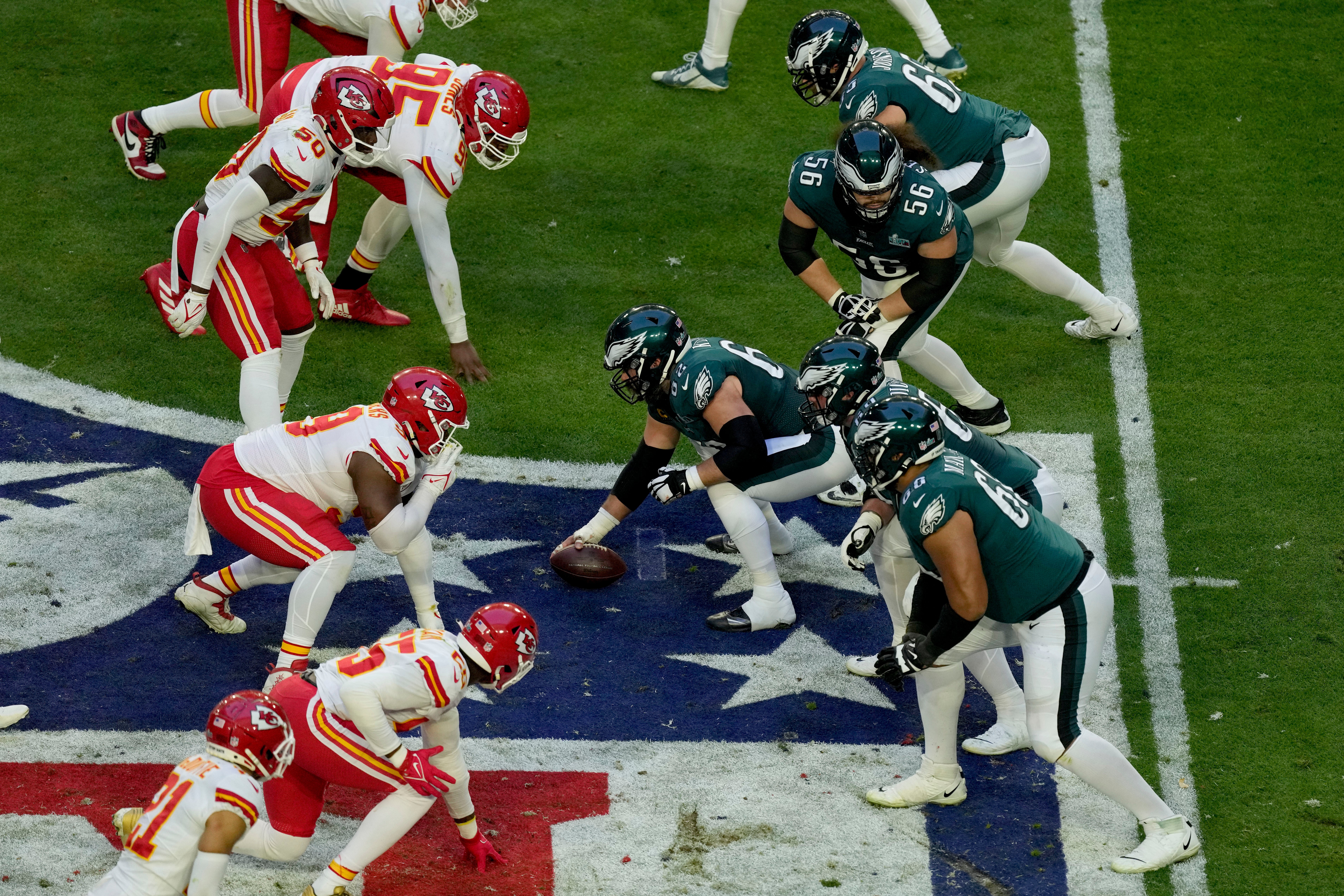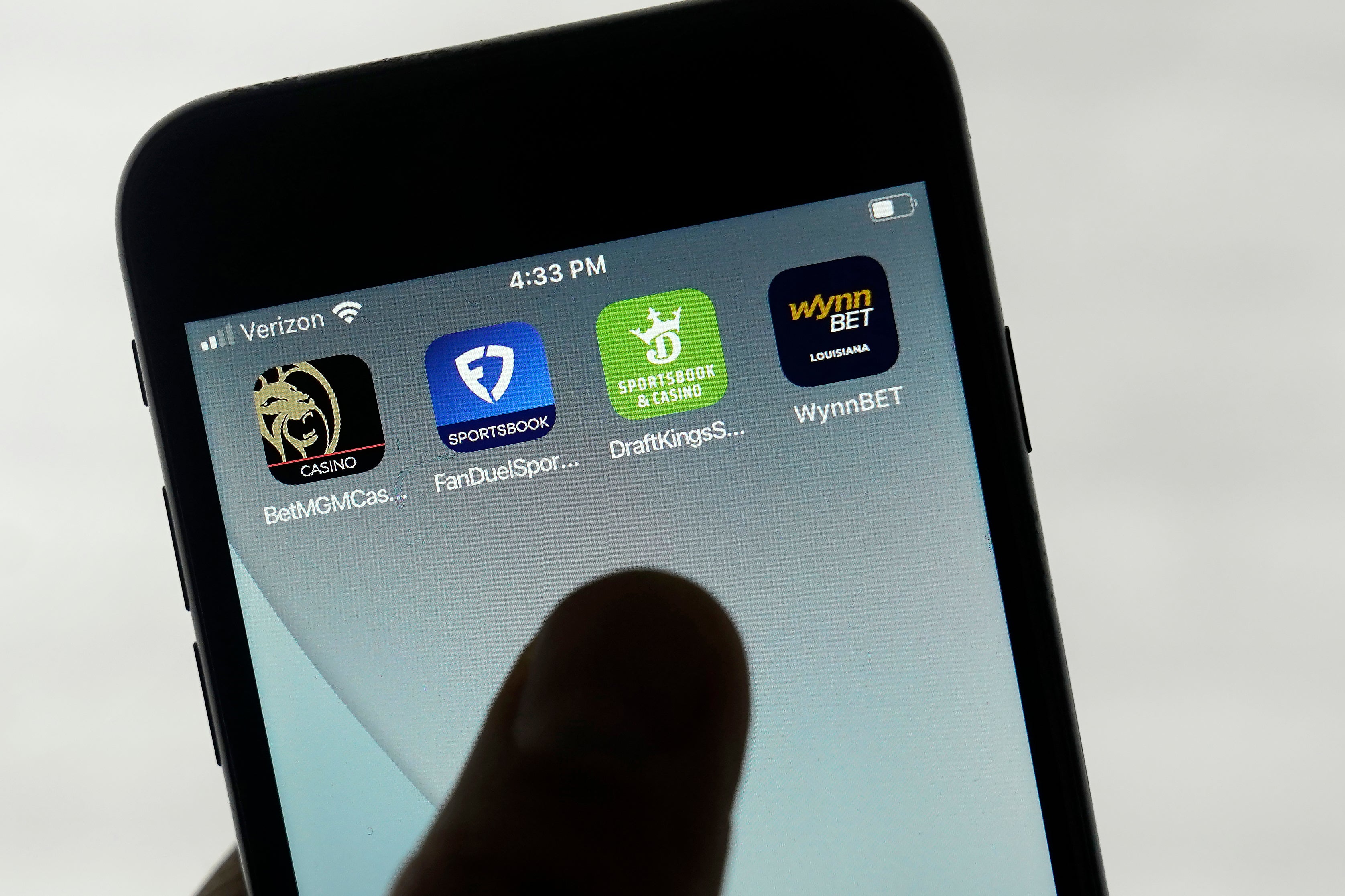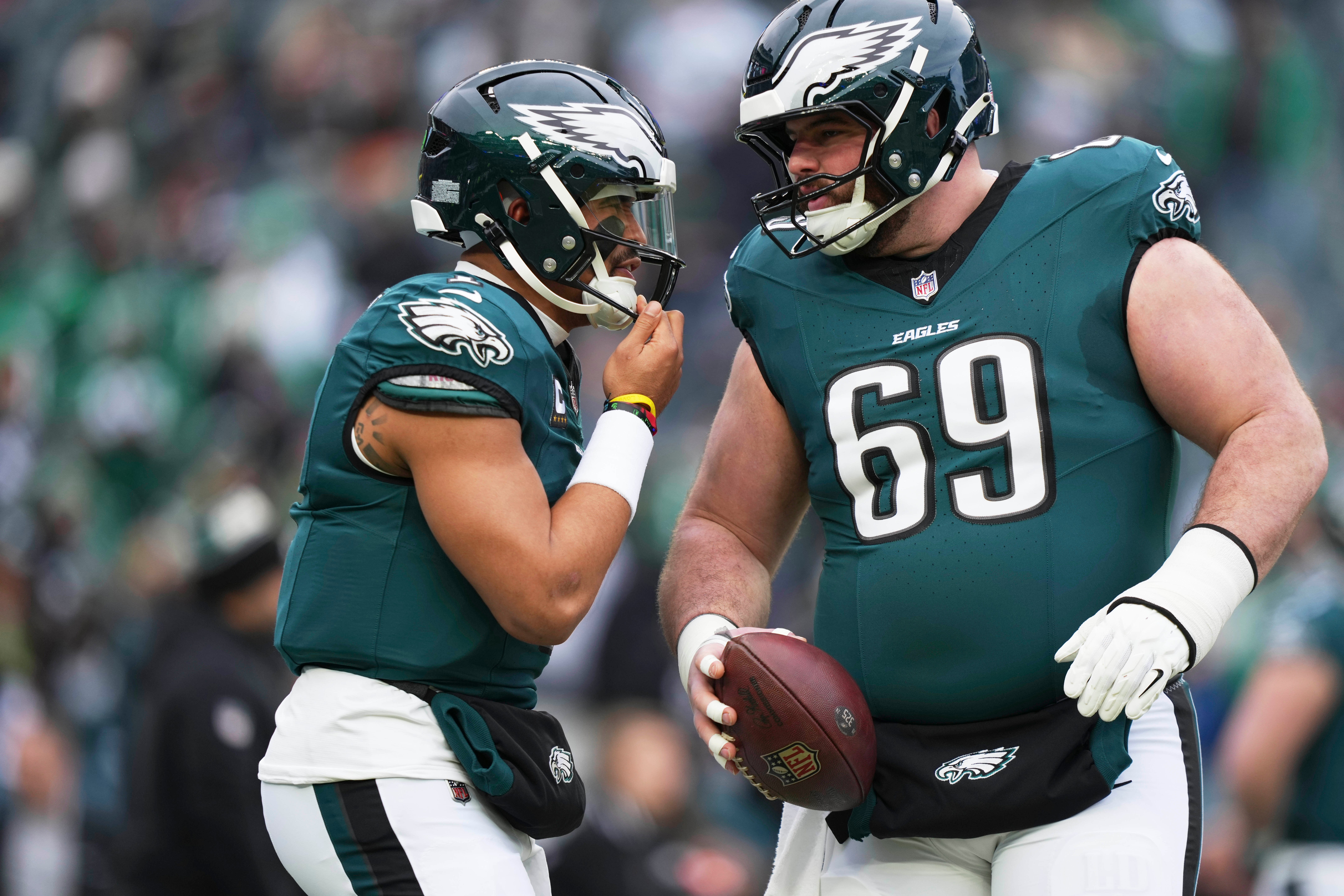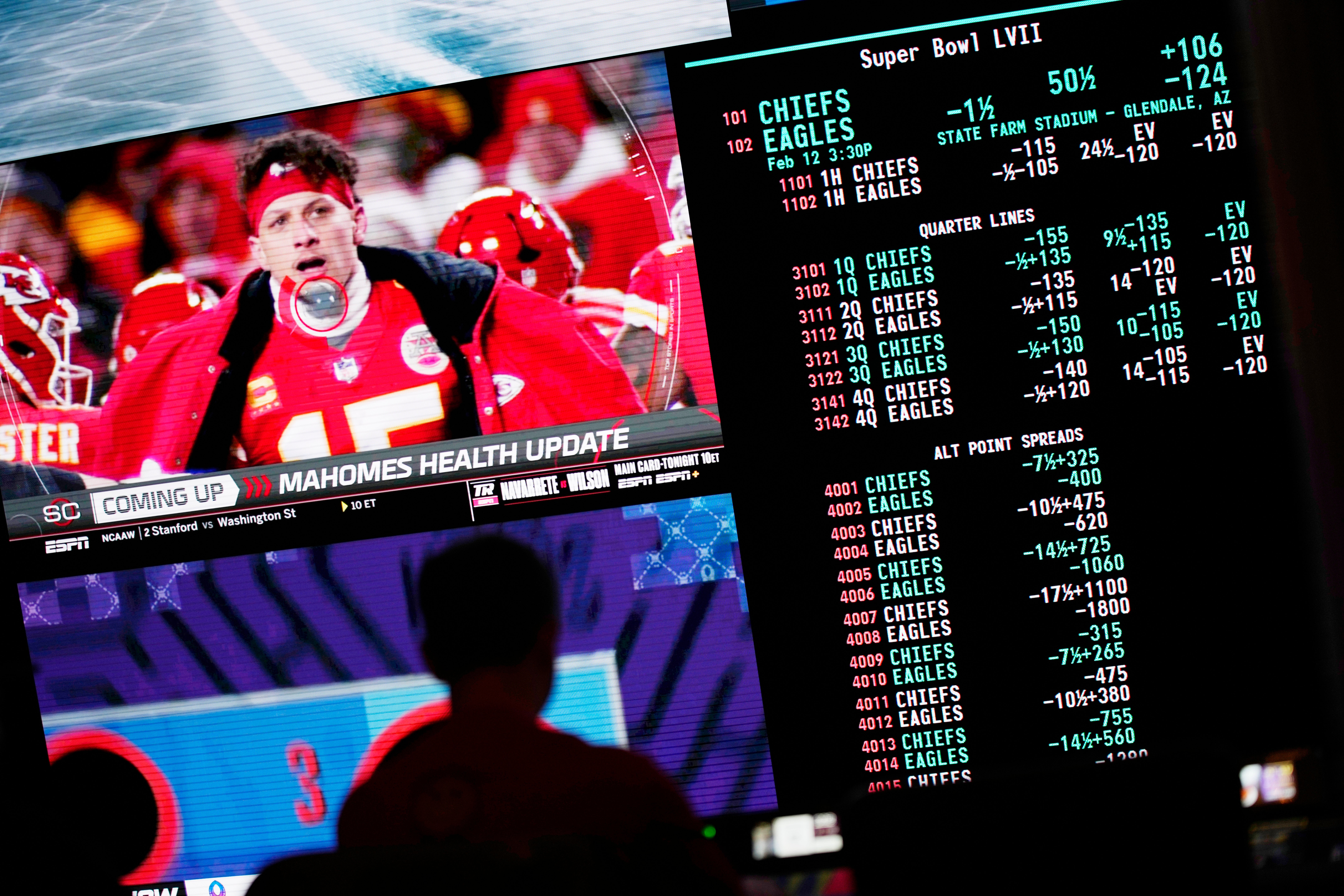An estimated $1.39 billion set to be wagered legally on Sunday’s Super Bowl showdown between the Kansas City Chiefs and the Philadelphia Eagles.
“No single event unites sports fans like the Super Bowl, and that excitement extends to sports betting, with this year’s record legal handle reflecting its widespread appeal,” said Bill Miller, president and CEO of the American Gaming Association, which has projected the immense figure.
But while the vast amount of money being wagered annually on the Big Game increases each year, experts worry that betting culture is irreversibly changing the way people enjoy and digest sports, sometimes with devastating consequences to their personal finances and livelihoods.
Currently, 38 states and Washington D.C. have legal sports betting markets, which has, according to the AGA, expanded consumer access to “safe, regulated options.” Yet cases of gambling addiction remain at an all-time high.

In August 2024, The National Council on Problem Gambling estimated that approximately 2.5 million adults in the U.S. were severely addicted to gambling, and another four to six million people have mild to moderate gambling problems.
Now, some are concerned that betting on games is becoming “normalized” to the point where fans cannot enjoy watching even their favorite teams without putting money down.
“It’s certainly hard to separate the two,” says Cait Huble, Director of Communications at NCPG, who has noted the steady and continuous rise in the number of people seeking help for gambling addiction since 2018.
She attributes the rise to increases in awareness and accessibility, and the new types of bets available. “You’re not driving to a casino, you’re not going to buy a lottery ticket, It’s in your phone, in your pocket, 24 hours a day,” she told The Independent.

And it’s not just a bet on winning or losing the game. There’s parlays, there’s in-game betting, there’s micro-betting. And now we’re also seeing the ability to ‘trade futures’ on the game… So all of these factors combined, we are expecting the risk for gambling addiction to go up.”
Though the NCPG has not yet collated exact data on the number of gambling addictions from the past three years, some states have seen spikes of their own.
In Pennsylvania, home of finalists the Eagles, the number of people contacting the state gambling addiction helpline with concerns about their personal habits or those of a loved one has hovered around 2,600 for the past three years.
According to the Council on Compulsive Gambling of Pennsylvania, the combination of legal sports betting in the Commonwealth and a home team vying for the win will likely result in a record number of individuals placing bets leading up to, and on, game day this year.
However, Josh Ercole, Executive Director of the CCGP, says that the proliferation of sports betting has led to some of even the most loyal supporters losing their basic love of the game.

“We hear stories all the time about people who are die-hard Eagles fans, who bet against the Eagles,” he told The Independent. “Or die-hard Eagles fans who win, but it doesn’t cover the spread, and ultimately they’re disappointed.
“So, you know, it’s those situations where it’s really interesting to see people have a skewed sense of the outcome, because they’re now basing it off of something other than wins or losses.”
Despite rooting for the Birds on Sunday, Ercole points to the phenomenon about the Chiefs too. Fans of Travis Kelce and Patrick Mahomes too, he says, are no longer happy simply seeing their team win week after week.
“It’s interesting just to see that for somebody that is wagering on Chiefs games in a traditional spread bet, the way that they look at their wins versus losses is very different from a casual spectator who is just a Chiefs fan and just wants them to win,” he said.
And it’s not just adults who are being affected. Ercole says there has been a “dramatic” increase in “younger folks” getting in touch via the CCGP’s chat and text portals. “It makes sense when you think about it,” he says.

“They’re already on their phones placing these wagers and when problems start, or if they have questions about, [about] how to get help, or what tools exist to help put a block in between themselves and the issue. They’re going to reach out using that, that non-verbal, non-traditional communication avenue, right?”
Huble has seen similar trends. She recalls speaking to a Missouri teenager. “He’s 16 or 17 years old and he was saying he doesn’t know any other friends who don’t sports bet, and they’re just logged in on their phones. Their parents have no idea they’re doing it,” she said.
Both Huble and Ercole agree, especially with no signs that the trends are slowing, that better safeguards need to be put in place to protect self-proclaimed gambling experts: those who think that their sporting knowledge translates to the betting world.
“If you’re going to do this, it’s important to keep it fun and entertaining, and not as a source of income. And all too often, that line can get really blurry, really quick,” says Ercole.













